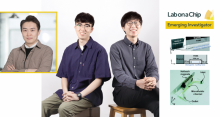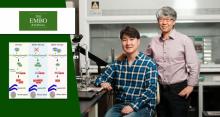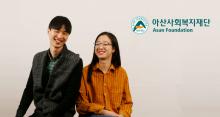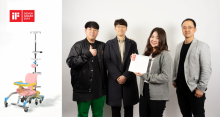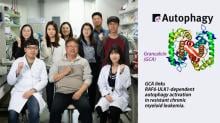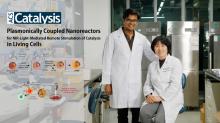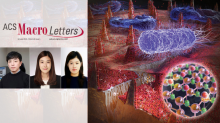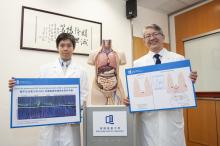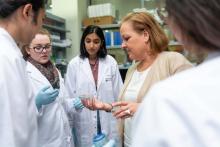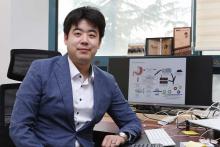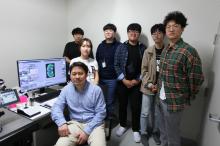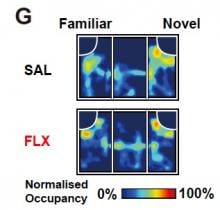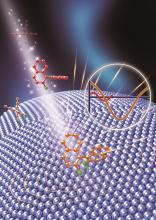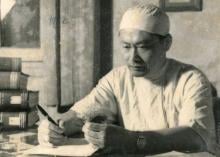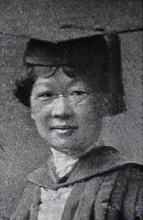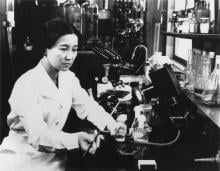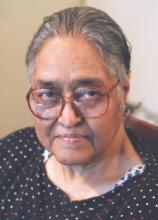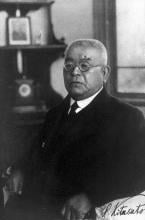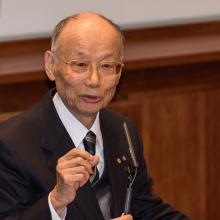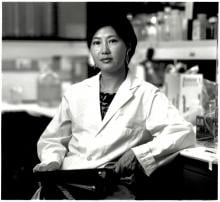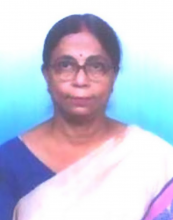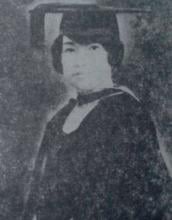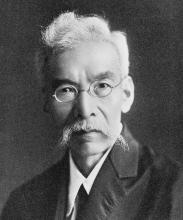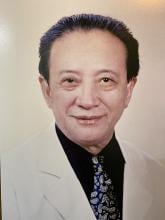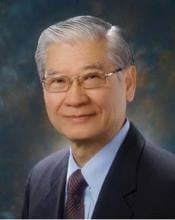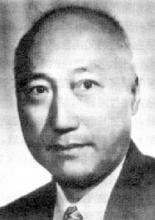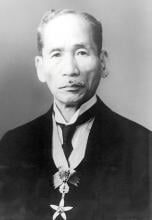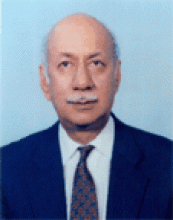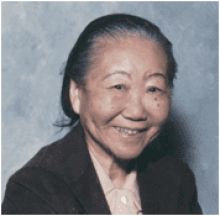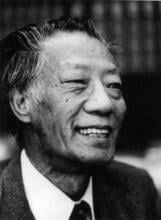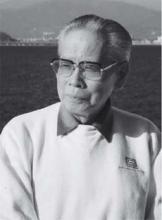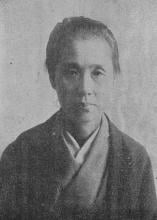Health
News
31 Aug 2019
The Chinese University of Hong Kong (CUHK) will commence clinical trials of Chimeric antigen receptor-T cell (CAR-T cell) therapy, with the first phase targeting patients with haematological malignancy. The plan is to increase the survival rate and prolong overall survival for these patients. To accomplish this goal, CUHK is planning to establish Hong Kong’s first CAR-T cell laboratory licensed with Good Manufacturing Practice (GMP). It is expected to complete construction in 2020 and start clinical trials once the GMP licence is obtained. The research team hopes the therapy can further cover patients with other cancer types in the future.
30 Aug 2019
Professor Liming BIAN, Associate Professor of the Department of Biomedical Engineering of The Chinese University of Hong Kong (CUHK) and his research team have recently developed a novel method for preparing single chain nano material which significantly improves the efficiency by a factor of 20 over that of conventional methods. The research team further investigated the impact of the dynamic molecular conformational change in such material on cellular interactions in different biomedical applications at varying scales. This paves the way for the large scale production and translation of single chain nano materials in daily life. The study has been published in the prestigious scientific journal Nature Communications.
29 Aug 2019
A recent study, affiliated with South Korea's Ulsan National Institute of Science and Technology (UNIST) has discovered that restoring a gene altered in Down syndrome called the Down syndrome critical region 1 (DSCR1) rescued adult neurogenesis and learning and memory defects in a Down syndrome mouse model (Ts65Dn).
27 Aug 2019
Two graduate students, affiliated with South Korea's Ulsan National Institute of Science and Technology (UNIST) have been awarded the prestigious 2019 Asan Foundation Medical Bioscience Scholarship,
27 Aug 2019
A design team, affiliated with South Korea's Ulsan National Institute of Science and Technology (UNIST) has come up with a brilliant child-friendly design idea to help children have fun during their hospital stays.
27 Aug 2019
An international team of researchers, affilated with UNIST has identified a new gene that causes drug resistance against Novartis’s breakthrough cancer drug, Gleevec (Active ingredient: imatinib).
27 Aug 2019
A recent study, affiliated with South Korea's Ulsan National Institute of Science and Technology (UNIST) has successfully modeled network channels similar to our blood capillaries in the simplest way containing one or two loops.
26 Aug 2019
A recent study, affiliated with South Korea's Ulsan National Institute of Science and Technology (UNIST) has introduced an artificial catalytic reactor that can take control of chemical reactions inside living cells, as desired.
26 Aug 2019
A recent study, affiliated with South Korea's Ulsan National Institute of Science and Technology (UNIST) has gained sufficient attention among researchers for introducing a powerful antifouling material, inspired from marine plants.
26 Aug 2019
Partners with BioSpectrum Asia, PRCA SEA and Asia Research News to launch the most comprehensive look-book focusing on how next decade holds for this exciting sector
19 Aug 2019
Vision and hearing loss are often perceived to be part of ageing, but a six-year-long national survey of 3,452 Singaporean adults over the age of 60, found that these impairments have much broader consequences for older adults.
13 Aug 2019
UK Research and Innovation and its partners are funding 13 research programs, building collaborations across 10 countries, including Japan, China, Singapore and India.
13 Aug 2019
Exchanging patient information between different healthcare IT systems is critically important, and FHIR is the global industry standard for this.
09 Aug 2019
Chronic stress induces autophagic death of adult hippocampal neural stem cells (NSCs). Expected to offer new opportunities for development of early treatment options for stress-associated brain diseases.
12 Jul 2019
As people age, the way different areas of their brain communicate with one another change, affecting thought processes and attention span.
03 Jul 2019
The Amgen Scholars Program (ASP) at Tsinghua University, funded by the Amgen Foundation, held its opening ceremony at Tsinghua campus.
01 Jul 2019
The world's largest JLABS and the first in Asia Pacific aims to support more than 50 life science start-ups from around the world with the hope to accelerate healthcare innovation in China and globally
25 Jun 2019
Researchers from the School of Chinese Medicine at Hong Kong Baptist University have found that the abnormal rise of a soluble protein called Nerve Growth Factor is a key factor linking early life stress to the development of irritable bowel syndrome.
21 Jun 2019
NYU Abu Dhabi researchers have reported a new way in which the liver is primed to regenerate itself. They found that by stripping parts of the epigenome, which play a primary role in repressing “jumping genes” (i.e. transposable elements), other epigenetic marks were redistributed.
20 Jun 2019
The project is part of KKH’s ongoing continual effort to enhance their facilities for a more holistic healthcare environment for the benefit of patients

19 Jun 2019
The APAC edition will take place as part of the HIMSS AsiaPac19 Conference and Exhibition, on 7-10 October in Bangkok, Thailand.
05 Jun 2019
Some teenagers harbor catastrophic changes to their genomes that can lead to lung cancer later on in life, even if they never smoke
24 May 2019
A research team in South Korea has clarified the expression of antidepressant efficacy by modulating hippocampal mossy cells. It is expected to provide a basis to understand the mechanism of existing anti-depressants and contribute greatly to the development of next generation depression treatment.
22 May 2019
A new treatment approach that involves blocking a protein has, for the first time, shown promising results in the treatment of fatty liver disease, in a landmark translational research collaboration between Duke-NUS Medical School, National Heart Centre Singapore and biotech company Enleofen Bio
16 May 2019
Visit Asia’s Leading Exhibition for Pharma R&D and Manufacturing Technologies
09 May 2019
A study by researchers at Duke-NUS, conducted of older Singaporeans (above 60 years) showed that those with a higher Body Mass Index (BMI) might have the same number of remaining years of life compared to those with a lower BMI, but spend fewer of those years in good health.
07 May 2019
The researchers have completed the first phase of the study and the major findings are classified into physical and functional health, social engagement, intergenerational transfers, volunteerism, work and retirement and lifelong learning.
30 Apr 2019
Exposure to antidepressants in the womb leads to autistic-like behaviour in full-grown offspring in an animal model, according to a new study led by Duke-NUS Medical School.
29 Apr 2019
Scholars from Hong Kong Baptist University (HKBU) have invented a new method which could speed up the drug discovery process and lead to the production of higher quality medicinal drugs which are purer and have no side effects.
Events
Sorry, no events coming up for this topic.
Researchers
Sorry, no researchers coming up for this topic.
- « first
- ‹ previous
- 1
- 2
- 3
- 4
Giants in history
Vietnamese surgeon Tôn Thất Tùng (10 May 1912 – 7 May 1982) developed a pioneering technique that reduced the risks and mortality rate of liver operations.
Chinese biochemist Chi Che Wang (1894 - 1979), one of the first Chinese women to study abroad, advanced to prominent research positions at American institutions including the University of Chicago and the Northwestern University Medical School.
Ruby Sakae Hirose (1904 – 1960) was a Japanese-American scientist whose research contributed significantly to our understanding of blood clotting, allergies and cancer.
Flora Zaibun Majid ( 1939–2018) was an accomplished Bangladeshi researcher in botany and nutrition science and the first female chairperson of the Bangladesh Council of Scientific and Industrial Research.
Iranian physician and bacteriologist Azar Andami (8 December 1926 – 19 August 1984) developed a cholera vaccine to combat an outbreak that swept through the Middle East, India, Southeast Asia, and Africa in 1937.
Irene Ayako Uchida’s (8 April 1917 – 30 July 2013) strides to understand genetic diseases such as Down syndrome paved the way for early screening of chromosomal abnormalities in foetuses.
Baron Kitasato Shibasaburo (29 January 1856 – 13 June 1931) was a Japanese physician and bacteriologist whose work led to a new understanding of preventing and treating tetanus, diphtheria and anthrax.
Maggie Lim (5 January 1913 – November 1995) was a Singaporean physician who promoted family planning and expanded the access to clinics to improve the quality of life for mothers and children in Singapore’s early days.
By isolating soil microorganisms and studying the compounds they produce, Satoshi Omura (born 1935) discovered almost 500 organic compounds with unique properties that were produced by these microorganisms, including many new antibiotics.
The founder of the Adyar Cancer Institute in India, Muthulakshmi Reddy (30 July 1886 – 22 July 1968), fought to uplift women and girls from impoverished situations.
Chinese-American virologist and molecular biologist Flossie Wong-Staal (27 August 1946 – 8 July 2020) was the first scientist to clone HIV and determine the function of its genes.
Maharani Chakravorty (1937 – 2015) was one of India’s earliest molecular biologists whose research paved the way for advances in the treatment of bacterial and viral infections.
Archana Sharma (16 February 1932 - 14 January 2008) conducted research into plant and human genetics that expanded the understanding of both botany and human health. In relation to botany, she uncovered the means by which asexually-reproducing plants evolve into new species.
The first Thai woman to receive a degree in medicine, Margaret Lin Xavier (29 May 1898 – 6 December 1932), is best remembered for her compassion towards her less privileged patients.
In 1915, pathologist Katsusaburo Yamagiwa and his research assistant Koichi Ichikawa became the first to prove that chronic exposure to chemicals can cause cancer.
Filipino chemist and pharmacist Manuel A. Zamora (29 March 1870 – 9 July 1929) is best remembered for his discovery of the tiki-tiki formula to combat beriberi, a disease caused by Vitamin B1 deficiency.
After witnessing death and suffering as a youth in his home village during World War II, Nguyễn Tài Thu (6 April 1931 – 14 February 2021) set his sights on alleviating pain by becoming a doctor. After studying Traditional Chinese Medicine in China in the 1950s, Thu returned to Vietnam to serve in military hospitals. Eventually, he became the country’s foremost practitioner of acupuncture, a technique he first learned by inserting needles into himself.
David T. Wong (born 1936) is a Hong Kong-born American neuroscientist who is best known for discovering the antidepressant drug fluoxetine, better known as Prozac.
Indian organic chemist Asima Chatterjee (1917 to 2006) studied the medicinal properties of plant products, especially compounds known as vinca alkaloids.
Hsien Wu (24 November 1893 – 8 August 1959) is widely regarded as the founder of biochemistry and nutrition science in China. He was the first to propose that protein denaturation was caused by the unfolding of the protein, instead of chemical alteration.
Umetaro Suzuki (7 April 1874 – 20 September 1943) was a Japanese scientist best remembered for his research on beriberi, a disease caused by vitamin B1 deficiency, characterized by limb stiffness, paralysis and pain.
Syed Qasim Mehdi (13 February 1941 – 28 September 2016) was a Pakistani molecular biologist who was a founding member of the Human Genome Diversity Project (HGDP), which assessed human diversity by studying human migration, mutation rates, relationships between different populations, genes involved in height and selective pressure.
Tsai-Fan Yu (1911 – 2 March 2007) was a Chinese-American physician and researcher who was the first female full professor at Mount Sinai School of Medicine. She discovered that gout, a condition characterized by the painful inflammation of joints, was caused by elevated levels of uric acid in the bloodstream.
Min Chueh Chang (10 October 1908 – 5 June 1991) was a Chinese-American biologist who studied fertilization in mammalian reproduction.
A Japanese surgeon, Tetsuzo Akutsu (20 August 1922 – 9 August 2007) built the first artificial heart capable of keeping an animal alive.
Ogino Ginko (3 March 1851 – 23 June 1913) was the first registered female doctor to practise modern medicine in Japan.


